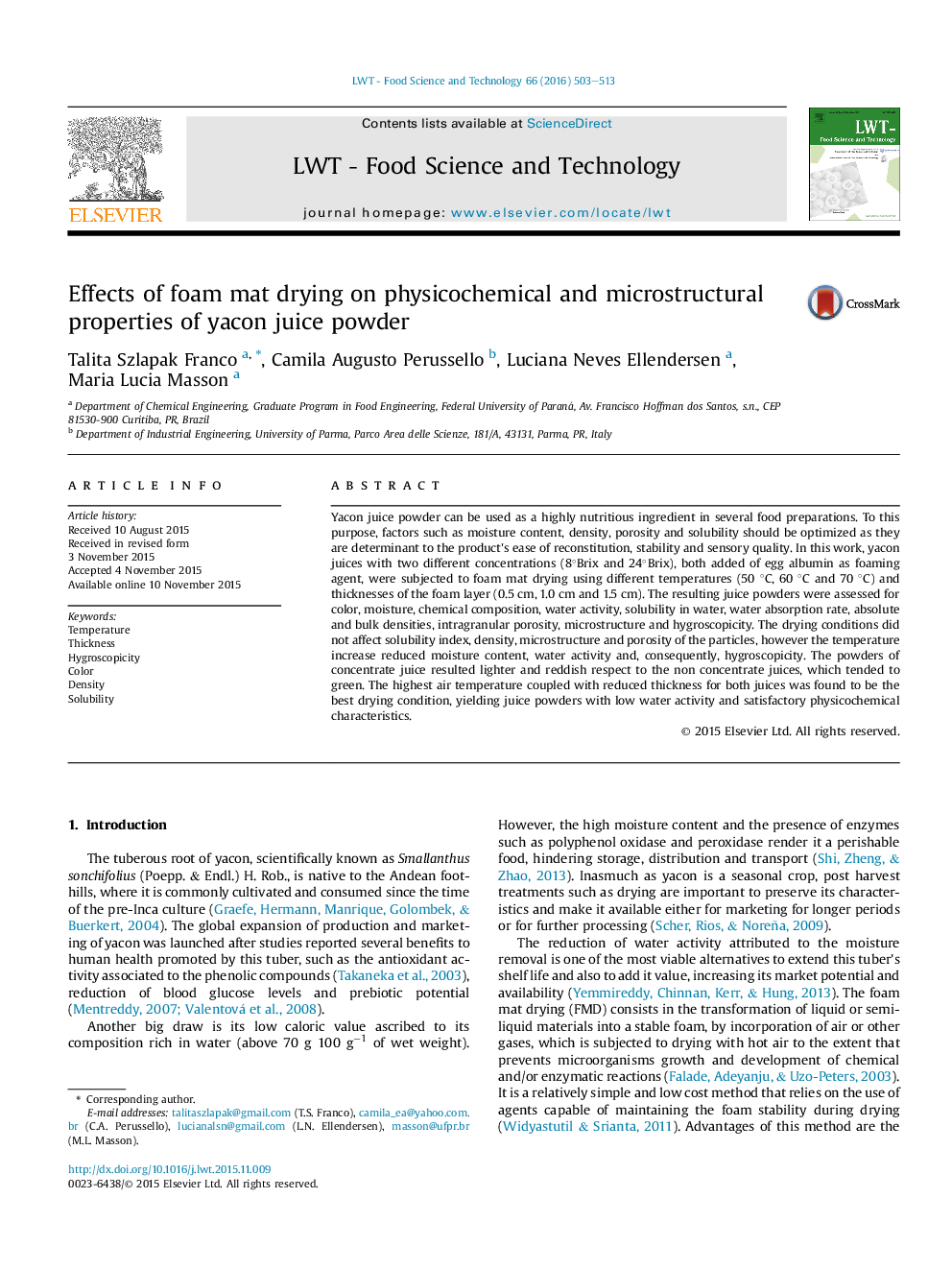| Article ID | Journal | Published Year | Pages | File Type |
|---|---|---|---|---|
| 6401034 | LWT - Food Science and Technology | 2016 | 11 Pages |
â¢The physical characteristics and morphology were not affected by drying conditions.â¢The increase in drying temperature reduced moisture content and water activity.â¢The powders of concentrate juice are light and reddish.â¢The powders of non concentrate juices tended to green.â¢The best drying condition was 0.5 cm and 70 °C for both juices.
Yacon juice powder can be used as a highly nutritious ingredient in several food preparations. To this purpose, factors such as moisture content, density, porosity and solubility should be optimized as they are determinant to the product's ease of reconstitution, stability and sensory quality. In this work, yacon juices with two different concentrations (8°Brix and 24°Brix), both added of egg albumin as foaming agent, were subjected to foam mat drying using different temperatures (50 °C, 60 °C and 70 °C) and thicknesses of the foam layer (0.5 cm, 1.0 cm and 1.5 cm). The resulting juice powders were assessed for color, moisture, chemical composition, water activity, solubility in water, water absorption rate, absolute and bulk densities, intragranular porosity, microstructure and hygroscopicity. The drying conditions did not affect solubility index, density, microstructure and porosity of the particles, however the temperature increase reduced moisture content, water activity and, consequently, hygroscopicity. The powders of concentrate juice resulted lighter and reddish respect to the non concentrate juices, which tended to green. The highest air temperature coupled with reduced thickness for both juices was found to be the best drying condition, yielding juice powders with low water activity and satisfactory physicochemical characteristics.
